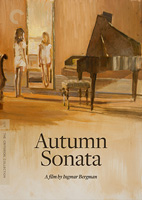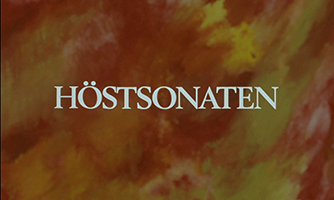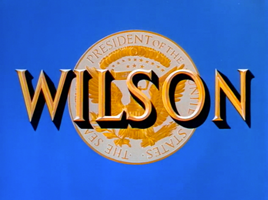
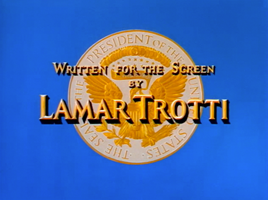
Winner in the category of WRITING (Original Screenplay) at the 17th Academy Awards, presented March 5, 1945 at Grauman’s Chinese Theatre.
The other nominees were:
Hail the Conquering Hero — Preston Sturges
The Miracle of Morgan’s Creek — Preston Sturges
Two Girls and a Sailor — Richard Connell, Gladys Lehman
Wing and a Prayer — Jerome Cady
[Note: the following excerpt is not from the shooting script (which is not accessible) but from the screenplay as edited and reformatted in Best Film Plays 1943—1944.]
PART ONE
The opening title fades in, reading:
SOMETIMES THE LIFE
OF A MAN MIRRORS THE LIFE OF
A NATION. THE DESTINY OF
OUR COUNTRY WAS CRYSTALLIZED
IN THE LIFE AND TIMES OF
WASHINGTON AND LINCOLN . . .
AND PERHAPS, TOO, IN THE LIFE
OF ANOTHER PRESIDENT . . .
(over narrative titles)
Of thee I sing —
Land where my fathers died,
Land of the pilgrims’ pride —
This dissolves to another title:
. . . THIS IS A STORY OF
AMERICA — AND THE STORY OF
A MAN . . . WOODROW WILSON
28TH PRESIDENT
OF THE UNITED STATES
(continued)
From every mountain side
Let freedom ring.
This fades out and another title fades in, reading:
PRINCETON UNIVERSITY
1909
And this dissolves to a long view of the PRINCETON CAMPUS.
We see the Princeton chimes and then the campus — with young men walking about and lounging on the lawn.
This scene cuts to a BUILDING on the campus, with a boy riding on a bicycle up the walk toward it.
Then we see PROSPECT AVENUE — the street of the undergraduate clubs, as carriages drive along the street and people walk along the sidewalk.
This dissolves to the PRINCETON FOOTBALL FIELD. The Princeton band, in black and gold uniforms, is marching out on the field, playing “Crash Through that Line of Blue.” The band leader marches out in front, twirling his baton, stepping high.
This cuts to the ROOTING SECTION: The Princeton students are cheering wildly. Many of them wear sweaters and the funny little hats then common to college students.
The YALE TUNNEL, as seen from above: The Yale team comes through the tunnel and runs out on the field. Off-scene we hear the strains of a band playing “Boola-Boola,” and wild cheering.
Then opposite the ENTRANCE TUNNEL, the Princeton team runs out on the field. Off-scene the cheering becomes even louder and “Crash Through that Line of Blue” dominates the music.
We see the PRINCETON STANDS, with a group of Princeton students on their feet, waving Princeton pennants and cheering wildly. The view moves over to a smaller group including WOODROW WILSON, President of Princeton, his wife, ELLEN, and his three daughters, MARGARET, JESSIE and NELL, and PROFESSOR HOLMES. Wilson and Holmes carry canes with Princeton pennants on them. Wilson and the girls are on their feet, and he is alive with interest in what is going on below.
(excitedly)
Now if coach only has sense
enough to put Felton in at
left half!
(seriously)
Is Felton good, Father?
(giving her an incredulous
look)
Good? My dear Nell, Felton
is the greatest broken field
runner since Willie Heston
of Michigan!
(squashed)
Oh.
[First lines in finished film are essentially as above.]
Correspondents “PHIL” and “MRB” had both taken the time to watch the film and were expected to join… but PHIL pulled out at the last minute because he had not received confirmation of the schedule, and MRB became unavailable only moments before the discussion began because she had not been kept apprised of the late start. BROOM, as the responsible party, then fell into a sort of guilt-coma, leaving BETH and ADAM to fend for themselves as seen below.
Those other parties are now invited — nay, encouraged — to contribute their reactions to Wilson in the comments section at the bottom.]
BETH I found it mesmerizing in an unexpected way, because of the Technicolor and the arm’s-length view. Everything felt sort of “over there.” We read that someone said it was like one of those fold-out postcards for tourists. It was like that.
ADAM At first I thought that it was a very effective piece of propaganda, because a handful of beautiful setpieces can be convincing and engaging… but then it was nothing but beautiful setpieces. It just seemed like it fizzled out. Particularly as the stakes got higher.
BETH It never had any fizzle, though.
ADAM But at first it felt like The Great McGinty, you know. I was like, “all right, I’m familiar with these setpieces.” It felt like it was building to something that was going to be exciting. But then it was just more stateliness and glossy speeches. And then we started to giggle at it, halfway through, and it became sort of unintentionally campy.
BETH I think that his family was always campy. His wife and daughters had nothing to say.
ADAM “Oh father, the Federal Reserve bill has been passed!”
BETH “You’ve always been interested in politics, dear!”
ADAM That’s not a real line from the movie. I mean, Beth’s is; mine was not. I still sort of enjoyed watching the whole thing. He did look very much like Woodrow Wilson, and they looked very much like what the interiors of the White House probably looked like.
BETH I think that a lot of care was put into making everything look accurate and feel like 1918, or 1916. So, I was sort of distracted by his second wife’s sexiness and how all of her costumes were…
ADAM Plunging?
BETH … yeah, and really stylish. It’s almost like the director or someone had a crush on that actress. I couldn’t stop looking at her.
ADAM It was weird when he was hitting on her. It felt like your dad hitting on his secretary.
BETH “I would like you to be my wife.”
ADAM “Do you have any reaction to that?”
BETH “Well, I think I have to say no.”
ADAM “But you’re the only person who can help America through this crisis. By sleeping with the President.” Right: because it was so stately, any time any actual human qualities touched their toe to it, it felt weird. What it would be like to see George and Martha Washington having sex, or having a domestic argument?
BETH After he had his stroke and she was incredibly cheery, I was like, “Maybe she’s just glad that she doesn’t have to have sex with him anymore.” I didn’t actually believe any of the relationships in it.
ADAM You didn’t really believe that he loved his first wife? Or that he really loved the League of Nations?
BETH I believe he loved the League of Nations. I believe the actual man Woodrow Wilson loved his first wife. But I didn’t believe this. That actress, whoever was playing his first wife, was not an actress. She just couldn’t really emote.
ADAM It was like watching the Hall of Presidents at Disneyland.
BETH It was a lot like that.
ADAM I did like the scene where the soldiers don’t think that she’s the First Lady, and then it’s like, “Oh, but the President is right here!” Kinda like the scene in The American President where she doesn’t believe that the President has asked her out on a date and she hangs up, and he’s like “why don’t you call back the White House switchboard,” and she does, and then she’s super-stressed. Do you remember this scene?
BETH I don’t.
ADAM I really love that movie. Basically it has all the pleasures of this movie, which is to say: stately White House interiors. But also an amusing romantic comedy inside it.
BETH And probably less static direction. I really had a problem with the direction in this.
ADAM Okay, so the reason The American President works is because it is a romantic comedy although it’s set at the White House, and it follows the genre conventions of a romantic comedy. So are there genre conventions of a biographical picture?
BETH Yeah, aren’t there? I don’t know that this followed them, but it’s like: humble beginnings; then fortuitous rise; challenges faced in pursuit of something great; and then success or failure.
ADAM I guess this had that, but it was just so tepid, and tepidly committed to the emotion of everything it was talking about, that it didn’t really feel like it was going anywhere.
BETH And Wilson just seemed non-charismatic. I don’t know how accurate that was — my sense is that it probably was fairly accurate.
ADAM He thought up the whole League of Nations thing two-thirds of the way in. Suddenly we’re supposed to care about this? That’s why Lincoln is a much more effective version of this same kind of movie. Because you don’t have to watch, like, “Why, Mr. Lincoln, perhaps you should run for president!”
BETH It is like The American President, because Wilson didn’t necessarily want to be a president, so…
ADAM I think you’re thinking of Dave.
BETH I am thinking of Dave! This has come up before.
ADAM I liked both of those movie very much as a child.
BETH Anyway, I think that Wilson didn’t have passion in the way that, at least in a movie, we expect politicians to have.
ADAM I don’t mean to talk too much about The American President, but recall that he learns passion from his wife, which sort of melds the political plot and the romance plot. Whereas here they just don’t have anything to do with each other. “Oh, wait, Germany’s sinking American ships!”
BETH “Your wife is dead!”
ADAM Suddenly we have to think about his new wife, and war with Germany, and it doesn’t really have anything to do with what we were thinking about in the first half.
BETH Yeah, structurally… BROOM said during the movie that it felt like the World Book Encyclopedia article on Woodrow Wilson, and that seems right. There’s no dramatic arc to it, it’s just stuff.
ADAM I guess the obvious comparison is not The American President or Dave, seductive as those comparisons are, but Princess O’Rourke, which happened last year. It has the stateliness of the White House without really anything to it. And maybe that’s just a World War II thing, it’s just national symbolism that doesn’t have any content to it.
BETH Like, comfort in grand spaces?
ADAM Yeah, I guess. Grown-ups at home doing grown-uppy things in the White House, and everything’s all right. It has that same almost identical thinness to it. And sort of unwatchable boringness to it. Which can’t have been accidental, that both of these movies were honored in back-to-back years.
BETH Yeah. So the script is what we’re supposed to be thinking about. I was distracted by the direction, but…
ADAM The script was super boring.
BETH It was really boring.
ADAM Yes. The last words that BROOM is going to put on the blog were “The President has no further communications. Good day, gentlemen.”
BETH Yeah, it’s not like there were any really good lines. On a micro-level it wasn’t good either. There just wasn’t a lot to be excited about.
ADAM So what was your favorite thing about it, besides Edith’s dresses?
BETH The real footage.
ADAM The newsreel footage.
BETH What was your favorite thing?
ADAM That he looked a lot like Woodrow Wilson! I thought that was well cast. And I’ll bet Woodrow Wilson did smile grimly at musicals, like that, and was sort of an awkward dude who sang around the piano.
BETH And danced with his daughter in the parlor.
ADAM And was probably really rude to Henry Cabot Lodge even though it was counterproductive. It feels like everything was probably literally true. It just has the wanness of, like, us trying to read back the scripts of our own words. It just didn’t feel animated with anything.
BETH Well… as far as the others go, we could just have this discussion again later.
ADAM We should read the review now though.
[the New York Times review is read]
ADAM Well. That suggests that nobody could really see this clearly, because it was the middle of World War II. I don’t blame them.
BETH So it cost 4 million dollars to make, and it only grossed 2 million dollars. Which makes it a pretty big failure.
BROOM It was a terrible, terrible failure. Zanuck said nobody was ever to speak of it in his presence.
ADAM Is that true? But it won five Oscars!
BROOM I think that might show that the Oscars are rigged. I mean, not rigged, but…
ADAM Rigged in favor of Darryl Zanuck? That’s probably true.
Last line in film:
— The president has nothing further to communicate. Good day, sir.
[Long may our land be bright / With freedom’s holy light / Protect us by Thy might / Great God our King.]
The complete radio broadcast of the 17th Academy Awards. The presentation of the writing awards starts at 26:56, beginning with some jokes from Bob Hope and then a comic bit of film on “the inside workings of the writing racket” produced for the occasion. The announcement of Lamar Trotti receives warm applause, as do all the Wilson awards of the evening. Trotti says nothing into the mic while onstage. It seems that the organizers specifically requested no speeches, probably for the sake of the broadcast; the few recipients to speak all mention how they’ve been asked not to.
Darryl Zanuck receives the Thalberg award. His speech simply consists of thanking his collaborators on his projects of the year, which includes Henry King and Lamar Trotti for Wilson.
The only film I can find is the quickie newsreel of restaged presentations seen at the official Oscars site.
Remember: comment below, Wilson fans!
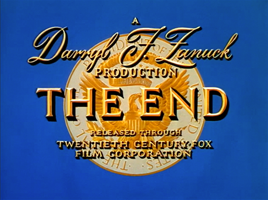
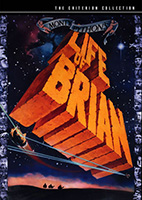
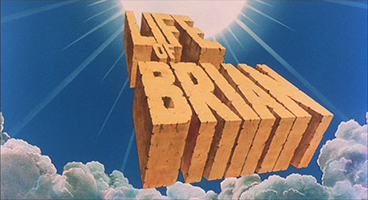
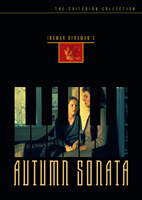 2013:
2013: 